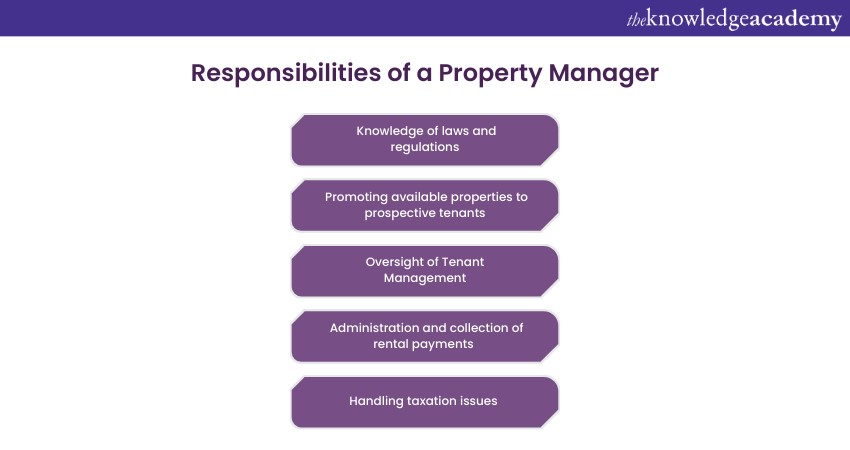What Does Property Management Services Mean?
Table of ContentsWhat Does Property Management Services Mean?


Property monitoring professionals, additionally called residential property managers, play an essential role in maintaining the value, capability, and profitability of genuine estate homes. They offer as the intermediary in between homeowner and tenants, making sure smooth procedures while protecting the financial investment. The extent of responsibilities for building management experts is wide, spanning economic, functional, lawful, and calculated obligations. Recognizing these obligations can give insight into why hiring competent specialists is essential for both residential and commercial home owners.Financial ResponsibilitiesA core duty of residential or commercial property administration specialists is looking after the monetary aspects of a home. This begins with establishing appropriate rental rates by carrying out market evaluation and understanding comparable residential property values in the location. Property managers assess regional need, seasonal patterns, and economic factors to establish prices that are competitive yet successful. Appropriate rates guarantees high tenancy prices while making best use of earnings for the building owner.Once rates are developed, residential or commercial property monitoring specialists manage rental fee collection. They implement constant systems to guarantee lessees pay promptly, address late repayments skillfully, and impose lease terms when required. Beyond rental fee collection, building managers are liable for budgeting. They track expenses such as repair services, upkeep, energies, real estate tax, and insurance costs. By forecasting cash circulation and keeping accurate monetary records, they supply homeowner with a clear understanding of building performance.Financial reporting is another essential task. Property managers prepare monthly, quarterly, and yearly records summarizing revenue, expenditures, and net operating earnings. These reports make it possible for proprietors to make informed decisions regarding their investments. Furthermore, property managers typically coordinate with accountants or tax obligation professionals to make certain compliance with local, state, and federal tax obligation regulations, lessening liability dangers for the home owner.Operational ResponsibilitiesProperty administration professionals supervise the day-to-day procedures necessary to maintain and improve the building's condition. Upkeep and repair work are a considerable part of their responsibilities. This includes regular inspections to identify potential problems, preventive maintenance to avoid costly repair services, and reacting quickly to occupant maintenance requests. Property supervisors collaborate with service providers, vendors, and company to carry out work successfully and within budget.Another operational job is taking care of renter relations. Home managers handle questions, demands, and complaints, working or making sure a favorable living environment. Reliable communication fosters occupant satisfaction and retention, which is essential for lessening vacancies and keeping constant earnings streams. Residential property managers additionally perform detailed testing of possible renters, evaluating history checks, credit scores history, employment verification, and rental recommendations to choose reputable occupants.Compliance with building regulations is a vital functional obligation. Building managers make certain that homes satisfy regional building regulations, security requirements, and accessibility needs. They remain current with modifications in real estate policies, zoning legislations, and landlord-tenant regulations, ensuring that both the building and its administration techniques continue to be lawful. This includes appropriate handling of deposits, expulsion treatments, and reasonable real estate regulations.Leasing and Marketing ResponsibilitiesMarketing the building successfully is another crucial responsibility. Building monitoring professionals produce and implement approaches to draw in lessees through numerous channels, including on the internet listings, social networks, signs, and conventional advertising and marketing. They craft compelling residential property descriptions, emphasize essential amenities, and use specialist photography to display the residential property's appeal.The leasing procedure is additionally managed by building experts. They prepare lease agreements, describe problems and terms to renters, and ensure all lawful paperwork is precisely completed and authorized. Lease renewals are kept track of to maintain high tenancy rates, and building managers commonly discuss terms that benefit both the occupant and the proprietor. By managing this procedure properly, building supervisors mitigate dangers connected with legal disagreements and occupant dissatisfaction.Strategic ResponsibilitiesBeyond daily monitoring, property administration professionals offer strategic assistance to improve long-lasting building worth. They suggest proprietors on resources improvements, renovations, and residential property upgrades that can enhance rent out potential or draw in higher-quality renters. They might conduct market research study to determine emerging fads and possibilities for property development or diversification.Risk monitoring is an essential strategic duty. Residential or commercial property supervisors determine potential risks to the home's safety, economic stability, or legal standing and apply actions to minimize these threats. This consists of assessing insurance coverage, checking environmental hazards, and implementing safety and security procedures. Their critical input assists homeowner protect and expand their financial investment portfolio over time.Administrative ResponsibilitiesProperty management entails substantial management job. Property managers keep thorough records of leases, financial transactions, maintenance demands, evaluations, and renter communications. Accurate paperwork sustains lawful compliance, supplies liability, and acts as a resource in dealing with or solving disputes occupant concerns.Additionally, property managers collaborate with other experts, such as actual estate agents, accounting professionals, lawyers, and insurance companies, to make certain smooth procedures. They might also take care of vendor contracts, solution arrangements, and purchase of products essential for residential property maintenance. Via these management functions, building supervisors develop a organized and reliable administration system that profits both residential property owners and tenants.Tenant Retention and Area ManagementA considerable facet of residential property administration is renter retention. Residential or commercial property managers apply approaches to make sure renters feel valued and pleased, including timely upkeep, receptive communication, and community involvement. In commercial or multi-unit buildings, property managers may arrange occasions or efforts that foster a feeling of community, adding to occupant commitment and reducing turnover rates (Property Management Visit Website Services).They also mediate problems in between occupants when disputes arise, using problem resolution skills to preserve harmony within the home. By proactively dealing with occupant concerns and promoting favorable relationships, building managers lower vacancy rates and keep a stable revenue stream for residential property owners.Sustainability and Innovation IntegrationModern property administration progressively entails sustainability practices. Residential property managers may apply energy-efficient upgrades, water conservation systems, and eco-friendly waste monitoring techniques. By promoting lasting operations, home supervisors aid lower operational prices, enhance property worth, and charm to environmentally aware tenants.Technology combination is also a growing duty. Home monitoring software program permits supervisors to track leases, repayments, maintenance requests, and communication successfully. Automated systems streamline reporting, enhance information precision, and enhance the overall occupant experience. Modern technology also makes it possible for home managers to analyze efficiency metrics and recognize chances for enhancement, making certain that the residential or commercial property stays competitive in the market.Emergency and Crisis ManagementProperty management professionals must be prepared to handle emergency situations and dilemmas. This includes natural catastrophes, fires, flooding, or various other unforeseen events that may interrupt procedures or harm the property. Property supervisors establish emergency reaction strategies, coordinate with neighborhood authorities, and ensure that occupants are informed and risk-free throughout such events. Their capability to respond rapidly and properly minimizes damage and preserves renter confidence.Legal and Governing ComplianceCompliance with neighborhood, state, and federal legislations is a crucial my website obligation. Property monitoring experts ensure that all techniques follow landlord-tenant laws, reasonable real estate laws, zoning ordinances, and safety codes. They manage leases, manage expulsions lawfully, and make certain proper paperwork for all property-related purchases. Remaining educated concerning changing guidelines protects the homeowner from legal conflicts, penalties, or penalties.ConclusionProperty administration specialists wear numerous hats, stabilizing operational, financial, lawful, tactical, and management duties. Their duty extends beyond simple oversight; they are important to making the most of property worth, guaranteeing occupant contentment, and mitigating dangers. By taking care of the complexities of property procedures, building supervisors allow owners to concentrate on broader financial investment objectives while making sure that properties are efficiently maintained and profitable.From renter screening and lease collection to advertising, upkeep, compliance, and long-term tactical preparation, residential or commercial property monitoring experts offer detailed solutions that safeguard and enhance the value of property investments. Their proficiency is important for navigating the difficulties of building possession, and working with seasoned property monitoring experts is frequently a vital element in attaining sustained success in the property sector.In short, residential property administration specialists make sure that homes are not just kept yet optimized, developing atmospheres that are safe, well-functioning, and economically gratifying. Their diverse obligations need a combination of technical abilities, lawful understanding, financial acumen, and social capacities. Eventually, efficient property administration safeguards investments, makes best use of returns, and adds to the lasting success of homeowner in an increasingly competitive market.
